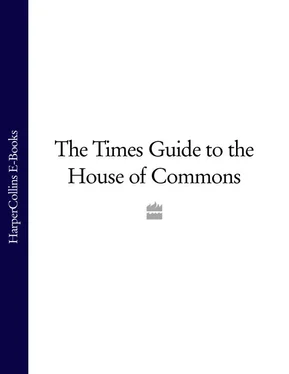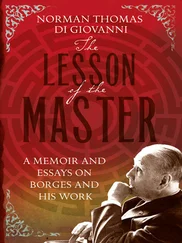Central banks started to pump cheap money into the financial system to get capital markets moving again but it failed to stem the rot. If the British public had become nervous about the state of the banking sector, their anxieties took a turn for the worse on September 13, 2007. At about 10pm, the news ticker along the bottom of the BBC news screen reported that Northern Rock had gone to the Bank of England to beg for emergency funds. Once news of the approach leaked out, the bank was effectively dead. The next day, a Friday, the shares lost 32 per cent of their value. Savers, who formed long queues outside branches, withdrew £1 billion that day.
Bankers from other institutions rushed to reassure shareholders that they did not need Bank of England funds. It emerged rapidly that Northern Rock could not survive without being acquired by a rival but none volunteered, put off by a £2.7 billion refinancing bill, its shonky mortgage book and limited branch network.
The infection spread to other parts of the financial markets, such as bond insurers. Citigroup, then the biggest bank in the world, started to dump losses. Merrill Lynch admitted at the end of October to $7.9 billion of bad debts. Between December and March, central banks across the world started slashing interest rates in the hope that cheap money would cushion the strain. Brussels set up a $500 billion facility just to tide banks over the Christmas period.
In January 2008 major stock markets, including London, suffered their worst one-day fall since 9/11, prompting the US Federal Reserve to reduce the cost of borrowing in the biggest cut for 25 years. Alistair Darling, the Chancellor, announced the following month that Northern Rock was to be nationalised.
It took one month for the next major bank to break. Bear Stearns, the weakest of the five Wall Street banks, was acquired by its bigger rival JP Morgan Chase in a deal worth $240 million, having been valued at $18 billion the year before. The manner in which the acquisition was handled dictated the rescue terms of every other terminally fractured US bank over the next 18 months. Four men masterminded every subsequent US bank rescue deal: Henry Paulson, the former US Treasury Secretary; Ben Bernanke, the chairman of the Federal Reserve Board; Christopher Cox, the former head of the Securities and Exchange Commission; and Tim Geithner, then president of the New York Federal Reserve Bank, latterly President Obama’s Treasury Secretary.
While hedge funds were allowed to snap like twigs under the financial strain, no US bank, large or small, was allowed to go bust on a weekday. The rescue talks often began in earnest on a Friday evening when world stock markets were shut. Mr Paulson was worried that if private rescue talks were leaked during the trading week, it could trigger wild swings in the stock market. The public statement declaring a troubled bank’s new buyer or winding down arrangement would typically be made by early evening on a Sunday in the US, just before Tokyo opened for Monday morning business and 13 hours before New York. On the other side of the Atlantic, RBS, UBS, the Swiss bank, and Barclays begged existing investors to pay £27.2 billion of new money between them to repair their damaged balance sheets. A number of banks also sold stakes in themselves on the cheap to cash-rich foreign states such as Qatar. But existing small UK shareholders were reluctant to increase their holdings at all as they watched the value of their own homes fall for the first time in 12 years.
Two months later, in July 2008, HBOS, then Britain’s biggest mortgage lender, tried to raise £4 billion from its own shareholders. It was a disaster. Only 8 per cent of investors agreed to buy more stock. Within days, the Chancellor warned Britain that it faced its worst economic crisis for 60 years and that the recession would last far longer than most had feared. Within a week, the world economy was plunged into the worst financial storm since the Wall Street crash of 1929.
The pace of the crisis accelerated to such an extent that almost each day delivered a new horror. On September 7, the mortgage lenders Fannie Mae and Freddie Mac, which accounted for almost half of all America’s home loans, were bailed out by Washington in one of the biggest financial rescues in history. The US taxpayer was faced with guaranteeing $5 trillion of outstanding loans. Three days later, Lehman Brothers admitted that it had lost $3.9 billion in 12 weeks. Rumours spread across Wall Street and the City that Dick Fuld, the head of Lehman, had not been able to find a rescue buyer.
On September 12, 2008, office workers descending into Wall Street’s subway on their way home may have noticed the stream of limousines pulling up around the corner. Like hearses, they delivered 30 of the world’s most powerful financiers to the office of the Federal Reserve. Between them, the men controlled the world’s banking system and they had been summoned by Mr Paulson to be told that Lehman was bust. He said that the US taxpayer was not going to bail it out and warned them that, if they failed to rescue Lehman or carve it up, they would all be caught up in the havoc. Those who attended included Lloyd Blankfein, chief executive of Goldman Sachs, and John Thain, his opposite number at Merrill Lynch. Mr Fuld was not invited.
By 3pm on Sunday, the rescue talks were off. Barclays had wanted to do a deal but was blocked by Britain, which demanded that the US Government should sweeten any deal with American money. With the collapse of Lehman now inevitable, employees of the bank in Canary Wharf and Manhattan were summoned back to their desks to calculate the bank’s colossal exposure and prepare for bankruptcy.
Mr Thain realised that his bank would be the next casualty. As Lehman employees packed up their belongings, Mr Thain was secretly signing a deal to sell Merrill to Bank of America for $44 billion. He even made sure that $4 billion of bonus payments for himself and Merrill staff were accelerated before the agreement was signed.
Six weeks before US presidential elections, Mr Paulson was adamant that the American taxpayer would not be called upon to bail out Lehman. Just before midnight, Mr Fuld announced that the bank was bust. During the course of one day, half of Wall Street had either been taken over or been declared bankrupt.
A far bigger, immediate financial crisis loomed. AIG, the world’s biggest insurer, was on the brink of collapse. Washington could not let AIG fail because it would have triggered a terrifying financial unravelling across the world. AIG, founded in Shanghai, owned substantial businesses. Most importantly, a huge financial markets business, with big operations selling products called credit default swaps, effectively writing insurance policies against other companies’ bankruptcies. In September 2008, it controlled assets worth $1 trillion. By the end of Monday, Washington had bailed AIG out with $85 billion and taken control of a 79.9 per cent stake.
In London, Sir Victor Blank, venerable chairman of Lloyds TSB, was signing a deal to bail out HBOS. After a run on HBOS shares, the British Government agreed to waive all competition rules and allow Lloyds to buy the bank, grabbing a third of the UK mortgage and savings market in one go. The deal went through but the strain of assuming HBOS’s bad debts on the healthier Lloyds became unsustainable. The transaction bought HBOS only a month before it needed to be bailed out.
The US Treasury Secretary became convinced that the whole banking system was vulnerable and came up with a plan three days later to rescue everybody. He proposed setting up a bailout fund into which $700 billion of taxpayer money would be pumped to buy lenders’ bad debts so the banks would start trusting each other again and start lending. Despite all-night talks during which politicians were ordered to leave their BlackBerries outside and Mr Paulson went down on one knee to beg Nancy Pelosi, the leader of the House of Representatives, to be sympathetic, it failed. On September 29, Congress blocked the creation of the fund and the markets slumped.
Читать дальше












